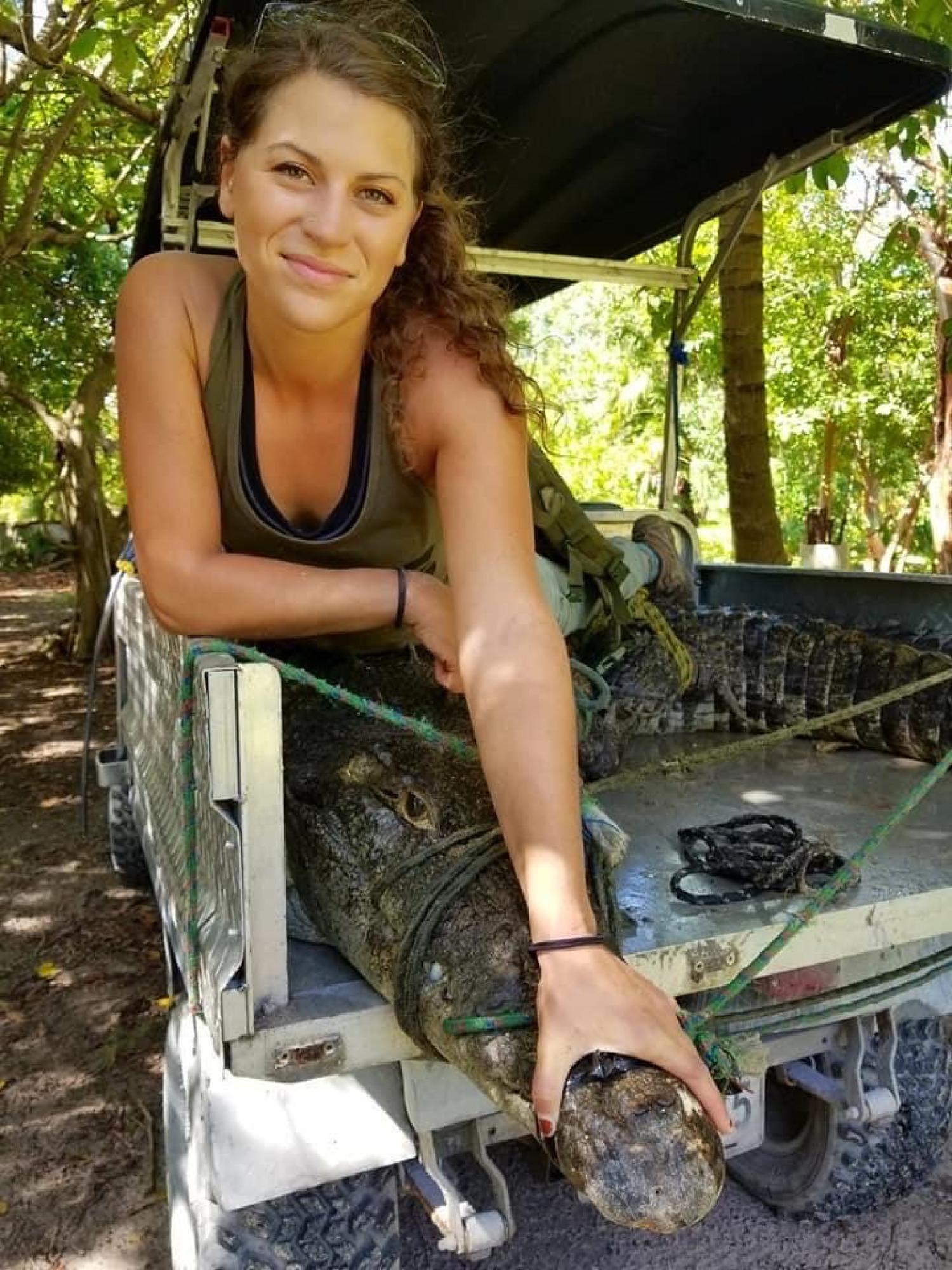
Crocodile Conservationist

Christina Manzi (Psch’14) is the lead wildlife rehabilitator at the Aces Wildlife Rescue, a wildlife rescue and rehabilitation center based in Ambergris Caye, Belize. A former parachute rigger, she first came to Ambergris Caye on a contract to help develop a new skydiving dropzone in the area. After falling in love with the local ecosystem, she remained in Belize for full-time conservation work.
Where did your passion for wildlife conservation come from?
I developed a fascination with the crocodiles that live here. I started volunteering with ACES, and this fascination quickly turned into a passion. Soon, I was spending more time with ACES than I was at my actual job! I realized that we cannot protect any one species without protecting the environment they live in.
Do you work with other animals?
When I started with ACES in 2017, we focused only on crocs. But then people started calling us about different species. Ambergris Caye is one of the most rapidly developing areas in the country, so the chance for human wildlife conflict is increasing daily. Since ACES began its expansion in 2020, I have treated 91 different species of birds, mammals and reptiles.
What might a regular day on the job look like for you?
I wake up bright and early to begin animal care. This involves tending to our critical patients — feeding each animal based on their specific dietary needs and lots of cleaning. I’ll probably get an emergency call at some point in the day and need to drop everything to respond.
What’s your favorite animal to work with?
I’m a total bird nerd. I’m usually talking about birds at least once during my day. But my favorite birds to rehabilitate and work with are seabirds, more specifically brown pelicans or red-footed boobies. They just have the goofiest personalities.
Do you have a favorite memory from your job?
Once I was doing a survey of a sewage treatment plant and looked down and saw a massive crocodile head. In between the sewage treatment ponds are these deep, coverless concrete pits which an 11-foot crocodile had fallen into trying to get from one pond to the next. We got the animal out safely — and without any wounds — and we were able to immediately release the crocodile. We’re currently working with the Belize water service to build wildlife-safe grates to ensure this never happens again.
Photo courtesy Christina Manzi

